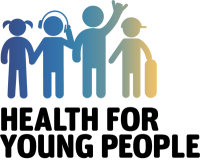Young Carer (supporting a loved one)
Many young people provide care for another person. As a young carer you may feel you are missing out on other opportunities as you have to spend so much time and energy caring for family members who are disabled or chronically ill, or for adults who are misusing alcohol or drugs. Many young carers suffer from anxiety and exhaustion because of the pressure of taking on adult responsibilities. You are not alone there are about 700,000 young carers across the country (Carer’s Trust).
As a young carer you might help with:
• practical tasks like cooking, housework and shopping
• physical tasks, like getting out of bed personal care, such as helping someone get washed or dressed
• giving medicine
• looking after brothers and sisters
Sometimes young carers can face extra pressures and struggle to look after themselves, because of the responsibility of being a carer, but it is important to take the time to look after your own well-being.
Below are some tools and organisations for further information and support to help you care for yourself.
Top Tips:
The Children's Society provides some helpful information for young cares including:
- Information for young carers at school
- Information for young carers in further education
- Information for carers and carers rights
- Information for young carers wellbeing and mental health
- Information for young carers and money & bills
- Information for young carers who are living with an alcohol dependent parent
If you want help and advice click onto the following website from The Children’s Society. They:
• have contacts and a database of young carers projects across England
• organise training events and regional conferences
• organise the annual Young Carers Festival
• have online resources for practitioners to identify and support young carers and their families
• enable young carers to have their voices heard through es/YCIF online safe social network for young carers
• support children and young people to have their voices heard within Parliament and present to Ministers
• support over 200 young carer ‘Champions’ to communicate and share their stories and advocate for the things that matter most to them in the Young Carers in Focus.
WebsitES
- Torfaen Young Carers
- Barnardo's: Newport Young Carers
- Families First Disability Newport Young Carers
- Carers Trust South East Wales
- Young Carers Caerphilly
- Young Carers Monmouthshire




